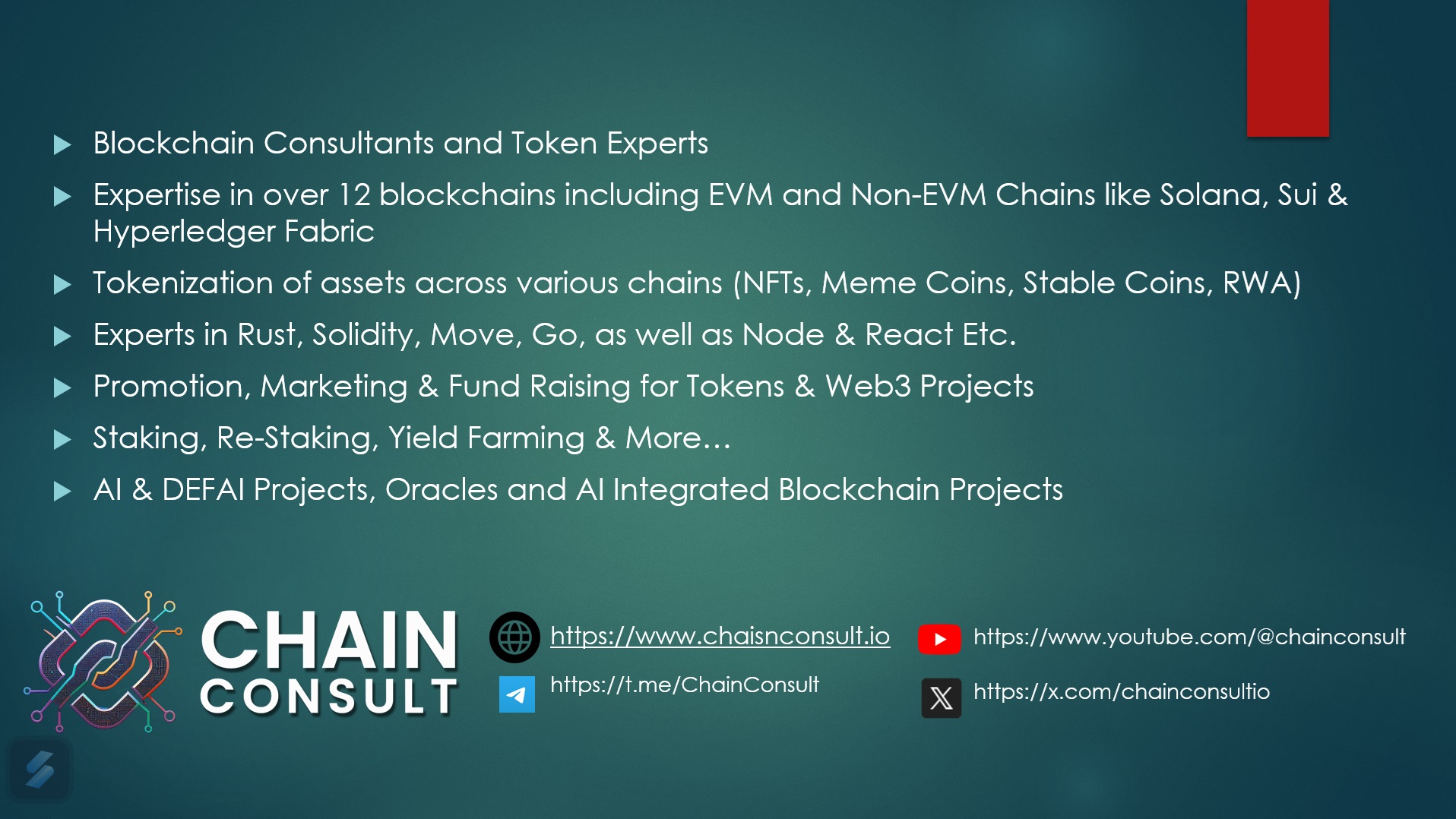
The digital landscape is evolving at an unprecedented pace, and Web3 is at the forefront of this transformation. While many traditional businesses have successfully adapted to Web2, the shift to Web3 presents an entirely new paradigm driven by decentralization, blockchain technology, and tokenized economies. As industries rapidly integrate Web3 principles, businesses that fail to evolve risk falling behind. In this article, we will explore why traditional businesses must embrace Web3 for future growth, the key opportunities it presents, and how companies can smoothly transition into this new technological frontier.
Understanding Web3: A Paradigm Shift
Web3 represents a decentralized internet powered by blockchain technology, smart contracts, and token-based economies. Unlike Web2, where centralized entities control data and applications, Web3 empowers users with ownership, security, and interoperability.
Key Features of Web3
- Decentralization: No single entity controls the ecosystem; instead, it operates on blockchain networks.
- Transparency: Data is publicly verifiable, ensuring accountability and trust.
- User Ownership: Individuals control their own digital assets, identities, and transactions.
- Smart Contracts: Self-executing contracts automate processes without intermediaries.
- Interoperability: Web3 applications (dApps) seamlessly interact across multiple blockchain networks.
Traditional businesses must understand these concepts to leverage Web3 effectively.
Why Traditional Businesses Must Embrace Web3
1. Enhanced Customer Engagement and Loyalty
- Web3 enables businesses to create tokenized loyalty programs, where customers earn digital tokens instead of traditional reward points.
- NFTs (Non-Fungible Tokens) allow brands to offer exclusive digital collectibles and membership perks.
- Decentralized identity solutions provide seamless login experiences without third-party authentication services.
2. Greater Security and Trust
- Blockchain ensures tamper-proof data storage, reducing fraud and cybersecurity threats.
- Zero-knowledge proofs allow businesses to verify customer credentials without exposing sensitive data.
- Smart contracts minimize human error and enhance transparency in transactions.
3. Decentralized Finance (DeFi) Opportunities
- Businesses can access decentralized lending, borrowing, and trading without intermediaries.
- Tokenized assets provide new avenues for fundraising, investments, and liquidity management.
- Cross-border transactions become more efficient and cost-effective.
4. New Revenue Streams with Tokenization
- Companies can tokenize real-world assets (RWAs) such as real estate, art, and intellectual property.
- Play-to-earn and move-to-earn models introduce innovative monetization strategies.
- Decentralized marketplaces enable peer-to-peer commerce without middlemen.
5. Web3-Enabled Supply Chain Efficiency
- Blockchain-based supply chains enhance transparency, reducing counterfeit risks.
- Smart contracts automate logistics and payment settlements, improving efficiency.
- IoT and blockchain integration provide real-time tracking and provenance verification.
Challenges in Adopting Web3 for Traditional Businesses
1. Regulatory Uncertainty
- Governments worldwide are still defining regulations for blockchain, cryptocurrencies, and decentralized applications.
- Businesses must navigate compliance issues, including KYC/AML and tax implications.
2. Scalability and Integration Issues
- Many Web3 applications face scalability concerns, leading to slow transaction speeds and high gas fees.
- Integrating blockchain with existing Web2 infrastructure requires technical expertise and investment.
3. Consumer Adoption and Education
- Web3 concepts like wallets, private keys, and DeFi can be complex for non-technical users.
- Businesses must prioritize user-friendly experiences and educational initiatives.
4. Security Risks and Smart Contract Vulnerabilities
- While blockchain is secure, smart contract bugs and exploits can lead to significant losses.
- Businesses should conduct regular security audits and adopt best practices.
Strategies for Traditional Businesses to Transition to Web3
1. Start with Tokenized Loyalty Programs
- Introduce reward tokens that customers can earn, trade, or redeem for exclusive benefits.
- Example: Starbucks’ Odyssey NFT loyalty program.
2. Explore NFTs for Brand Engagement
- Launch branded NFTs that offer VIP access, event tickets, or unique digital collectibles.
- Example: Nike’s .SWOOSH platform for digital sneakers.
3. Implement Blockchain-Based Supply Chain Solutions
- Use provenance tracking to enhance transparency and reduce counterfeit risks.
- Example: Walmart’s blockchain-powered food traceability system.
4. Accept Crypto Payments
- Enable cryptocurrency payments to attract Web3-native consumers.
- Example: Tesla accepting Bitcoin and Dogecoin for certain products.
5. Partner with Web3 Platforms and Experts
- Collaborate with blockchain developers, consultants, and startups.
- Engage in decentralized autonomous organizations (DAOs) to explore innovative governance models.
6. Invest in Web3 Education and Training
- Train employees on blockchain fundamentals, smart contracts, and crypto security.
- Engage customers through educational content to drive adoption.
Case Studies: Traditional Businesses Adopting Web3
1. Visa and Mastercard’s Web3 Initiatives
- Both companies are integrating blockchain for cross-border payments and digital asset services.
- Mastercard launched a Crypto Secure tool to detect fraud in crypto transactions.
2. Adidas and Web3 Fashion
- Adidas partnered with Bored Ape Yacht Club (BAYC) to launch exclusive NFT collections.
- The brand’s Web3 venture provides digital wearables and metaverse integration.
3. JPMorgan’s Blockchain and DeFi Engagement
- The bank launched JPM Coin for institutional blockchain settlements.
- Participated in DeFi liquidity pools on public blockchains.
The Future of Web3 and Traditional Businesses
1. The Rise of Decentralized Autonomous Organizations (DAOs)
- DAOs allow businesses to create community-driven governance models.
- More companies will experiment with DAO-like structures for decision-making.
2. The Convergence of AI and Web3
- AI-powered smart contracts will automate business processes more efficiently.
- Decentralized AI models will enhance data privacy and ownership.
3. Integration of the Metaverse in Business Operations
- Virtual experiences will become mainstream for branding, e-commerce, and collaboration.
- Businesses will create NFT-based virtual assets for customer engagement.

